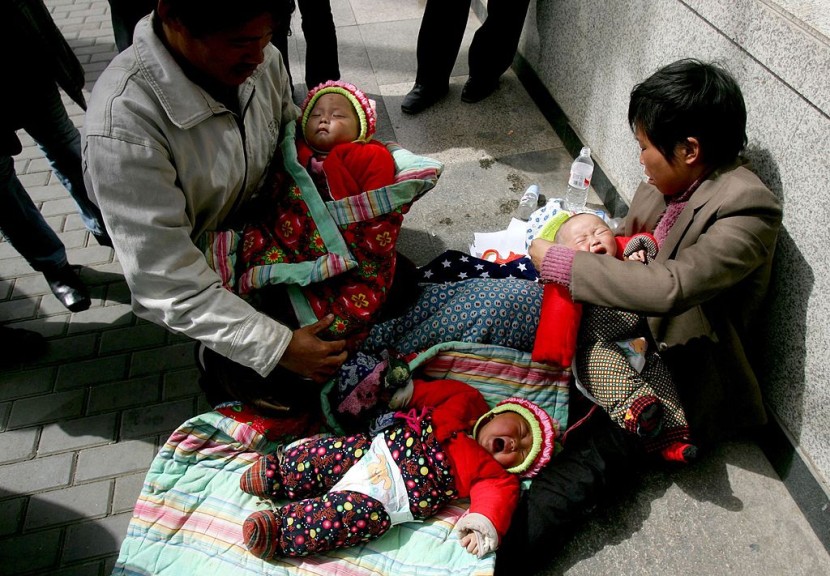
China's birthrate fell for the fifth year in a row in 2021, bringing the world's most populous country closer to a potentially seismic moment when its population begins to decrease, hastening a demographic catastrophe that may threaten the country's economy and perhaps political stability.
Because of the dropping birthrate and rising life expectancy that have followed China's economic change over the last four decades, the number of individuals of working age has continued to shrink in comparison to the growing number of those too elderly to work. This might lead to workforce shortages, stifling economic development and lowering tax income required to maintain an aging population.
China's birth rate drops to six-decade low
Beijing is facing a major political dilemma as a result of the scenario, which is compounded by the fact that the country is already experiencing economic difficulties. Along with the demographic statistics, the government announced on Monday that growth fell to 4% in the fourth quarter of 2018.
China's governing Communist Party has made efforts to combat the declining birthrate by loosening its infamous "one child" policy, allowing two children in 2016 and three since last year. It also provides incentives to young families and promises to enhance labor standards and early childhood education.
None have been able to reverse a stark fact: An increasing number of Chinese women don't want children. According to numbers released by the National Bureau of Statistics on Monday, the number of births decreased to 10.6 million in 2021, down from 12 million the year before. Even less than in 1961, when Mao Zedong's economic strategy, the Great Leap Forward, resulted in massive hunger and death, as per The New York Times.
China's birth rate was 7.52 per 1,000 people, the lowest since 1949, when Beijing began compiling data after the Communist Party came to power. According to Chinese official figures, this equated to 10.62 million births last year, down 12 percent from 12 million in 2020.
China's working-age population is already shrinking, pressured on both ends by fewer newborns and a rapidly aging population. Officials are rushing to mitigate the effect, advising couples to have more children. The problem is that a reduced workforce, which has been China's long-term development engine, would put the world's second-largest economy under strain.
Beginning in 2015, authorities relaxed birth restrictions. High prices, tight housing, and workplace discrimination against moms, however, deter couples. The official working age population, defined as those aged 16 to 59, fell to 882.2 million, or 62.5 percent of the overall population, down from 63.3 percent in the 2020 census. This is down from a decade earlier when it was 70.1 percent. Working-age people might account for half of the population by 2050, according to demographers, According to The Telegraph.
Read Also : China Deploys Unknown Number of Missiles Concealed in Civilian Ships; PLA Strategy Experts Claim
Other countries face same birth rate problem
Japan, Germany, and a few other prosperous countries deal with the same challenge of keeping older populations while employing fewer people. They may, however, rely on factory investments, technology, and foreign assets. China, on the other hand, is reliant on labor-intensive agriculture and industry.
In 2015, the party took its most significant stride forward when regulations prohibiting many couples from having more than one child were relaxed to allow for two. Prior to the one-child policy, China's birth rate was already declining, mirroring trends in South Korea, Thailand, and other Asian nations.
According to the World Bank, the average number of children per mother fell from above six in the 1960s to below three by 1980. Official birth limitations, according to demographers, masked a further reduction in the number of children per household.
The one-child restriction, which was imposed with the fear of penalties or job loss, resulted in abuses such as forced abortions. Parents killed infant girls because they preferred sons, causing fears that millions of men would be unable to find a wife and creating societal strife, Daily Mail reported.
Related Article: Strong 6.9 Magnitude Earthquake Shakes Parts of Western China; Section of Great Wall of China Collapses
@YouTube








